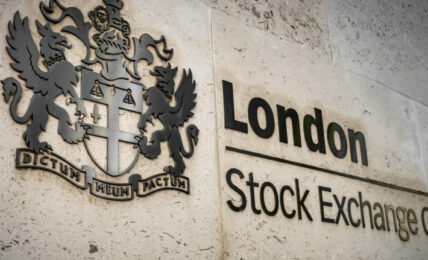By: Scott Lemoine, Lead ESG Advisor at Measurabl
As the global focus on environmental, social, and governance issues continues to rise, real estate owners and operators are facing increasing pressure to adopt comprehensive and proactive solutions for reporting their ESG performance.
Historically, real estate companies in the United States have relied on voluntary ESG guidelines led by the private sector. However, ESG has recently become a greater priority for policymakers, with the pending Climate Disclosure Rule proposed by the SEC. If passed, these rules would hold companies to higher standards than ever before, requiring them to identify, assess, and manage climate-related risks, as well as disclose the strategies for addressing these risks.
The proposed regulations also put increased pressure on greenhouse gas emission disclosures, requiring companies to report on not only their direct emissions (Scope 1) and emissions from purchased energy (Scope 2), but also, in some cases, emissions across their entire supply chain (Scope 3).
Though the proposed federal regulations are being challenged in court, it is clear that real estate organizations in the U.S. will need to adopt a more formal approach to disclosing their ESG performance and climate risks in order to remain competitive in the industry. Between the proliferation of EU regulations and growing pressures within the U.S. to embrace more ESG initiatives, monitoring and measuring will become business as usual.
However, gathering data for everything from carbon emissions to energy and water consumption, as well as assessing physical climate risks, can be a complex and time-consuming task when done manually. It is equally challenging to keep up with constantly evolving regulations and reporting deadlines. But there are several ways that can help make these seemingly herculean tasks easier.
A Hybrid Approach Can Help You Overcome Common ESG Reporting Roadblocks
For real estate firms, keeping up with the ever-evolving landscape of ESG regulations may seem impossible, particularly for those with small or non-existent sustainability teams. However, deploying the right resources can put these objectives within your reach.
One key initiative is automation. By utilizing AI-enhanced technology that gathers and centralizes data from disparate sources, companies can avoid human errors and time consuming manual inputs. Automated data and machine learning also allow teams to more easily manage and measure their carbon emissions and physical climate risks to assess performance and comply with current ESG regulations and requirements.
Additionally, working with an ESG expert who has a deep understanding of the broader real estate ESG landscape can help streamline your reporting process and extract the most value from your data, while reducing the burden on your full-time employees.
By partnering with a tech-enabled advisor who can leverage the data already collected, companies can better understand and satisfy evolving frameworks, ultimately receiving ESG ratings that are truly reflective of your related investments and successes.
An ESG expert can not only optimize your internal processes, but also help you create and demonstrate data-informed roadmaps and action plans that will propel your company forward in achieving essential ESG goals. Additionally, leveraging automation and third-party expertise can help you improve data quality.
Pursuing Investment-Grade Data
There are several components that qualify data as investment grade, and each of these is important to verify your ESG performance and establish trust with investors, legislators, tenants, and other stakeholders. To satisfy increasing demands, real estate companies must strive for:
Accuracy – Accurate andverifiable data will be required to comply with the proposed SEC rulings and other legislation, while mitigating the financial and legal risks associated with noncompliance. Automating all data collection in one central location can save time and eliminate the errors associated with manual data input.
Timeliness – We’re moving away from an annual reporting season. Centralized, continuously updated data can help you generate reports for investor requests whenever you need to share insights.
Granularity – ESG is no longer simply about energy, carbon, water, and waste. Real estate companies are also expected to document and disclose climate risk initiatives as well as social and governance policies. Investors and other stakeholders need clear, timely and accurate data to compare and understand a company’s comprehensive ESG performance.
Optimized ESG Reporting Leads to Profitable Outcomes
Efficient and granular ESG reporting will become a competitive differentiator for companies, increasing transparency and improving relationships with stakeholders. Moreover, the ability to view and track performance at the asset level enables companies to identify their lowest-performing buildings and inform capital investments to increase energy efficiency, reduce water consumption, or improve waste diversion rates.
Having all this data on hand allows firms to stay ahead of investor demands and helps them gain access to cheaper, better capital. Optimizing ESG reporting can also reduce operating expenses and increase property values — JLL reports that sustainable buildings have a 6% rent premium and 8% sales premium. Above all, this type of tech-enabled ESG reporting ensures companies can contribute toward building a more sustainable future.
About the author:
Scott Lemoine is a Lead ESG Advisor at Measurabl, where he manages the Advisory Services vertical for North America. He has over nine years of experience in sustainability and ESG consulting for public and private real estate owners and operators. Scott specializes in developing and deploying ESG programs across the entire lifecycle, from long-term strategy development and stakeholder engagement to building decarbonization and reporting.
The post Guest Post: How Real Estate Firms Can Streamline ESG Reporting and Improve Their Bottom Lines appeared first on ESG Today.


